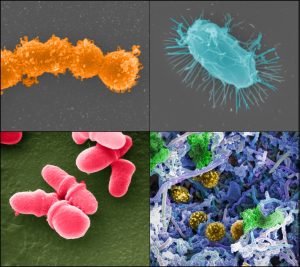September 2024
Full time
24 months
Suzhou
School of Science
This programme leads to a University of Liverpool degree which is recognised by Ministry of Education, China.
Knowledge and skills
Through this programme, graduate students will:
- gain comprehensive mastery of core theoretical knowledge, analytical methods, and practical skills in bioinformatics, ensuring a solid foundation in the interpretation and application of biological data;
- acquire proficiency in the intersecting methods and techniques of computer science, biology, and statistics, enabling efficient processing of large biological datasets and extracting critical information;
- become highly sought-after professionals in computational biology and genomics, meeting industry’s and academia’s demand for advanced specialised skills;
- independently design and manage research projects, including literature review, project planning, establishing data analysis frameworks, solving technical challenges, evaluating analytical results, and presenting project
- develop vital transferable skills such as IT proficiency, effective communication, problem-solving, interpersonal skills, organisational management, public speaking, and time management, laying a solid foundation for future career success.
The integration of these abilities and skills ensures that graduates not only excel in academia but also demonstrate outstanding competitiveness and adaptability in various bioinformatics-related industries.
The MRes programme in Bioinformatics at XJTLU integrates multidisciplinary knowledge from biology, computer science, applied mathematics, and statistics, positioning itself at a critical intersection in modern biological research. This programme provides advanced training in computational, data, and biological sciences for students passionate about the field, with a particular emphasis on cultivating logical and rigorous research skills. Through theoretical learning and practical application, the programme aims to equip students with the most advanced methods and tools for biological data analysis, enabling them to become innovators and leaders in academia, biotechnology, pharmaceuticals, and other industry sectors. This comprehensive skillset will give graduates a competitive advantage in their future careers.

Dr Xinzhao Tong
Programme Director
Modules
*Programme modules listed are illustrative only and subject to change. XJTLU students are advised to log in to the e-Bridge Portal to view the effectuated module structure.
Semester 1
Semester 2
Semester 3
Semester 4
Semester 1
Semester 2
Careers
The MRes programme in Bioinformatics at XJTLU significantly enhances graduates’ career prospects in both academia and industry, particularly in biotechnology, pharmaceuticals, and healthcare. Through this programme, graduates will acquire critical skills in the computation and analysis of biological data, making them highly sought-after professionals in genomics, drug development, and personalised medicine. Graduates are well prepared for various roles, including bioinformatician, researcher, and data analyst. Those interested in furthering their research can pursue a PhD, contributing to advancements and innovation in the field of bioinformatics.










Overview
The MRes programme in Bioinformatics at Xi’an Jiaotong-Liverpool University (XJTLU) is dedicated to training bioinformatics researchers. Targeted at graduates in bioinformatics, biological sciences, computer science, mathematics, and related fields, the programme aims to systematically teach the methods and applications of bioinformatics, equipping students with critical theoretical and practical skills for analysing and interpreting biological big data.
The programme follows a progressive curriculum. The first semester focuses on core modules, covering genomics, proteomics, statistical genetics, machine learning, and relevant programming skills. In the second semester, students begin participating in research projects under the guidance of experienced supervisors, engaging in independent research and academic writing to gain valuable practical experience and enhance their scholarly writing abilities.
XJTLU is equipped with advanced bioinformatics resources, such as high-performance computing clusters, ensuring students can quickly master the latest data analysis and computational techniques through laboratory work and practical assignments. These cutting-edge resources provide significant learning advantages for students and are a distinctive feature of the programme’s educational framework.